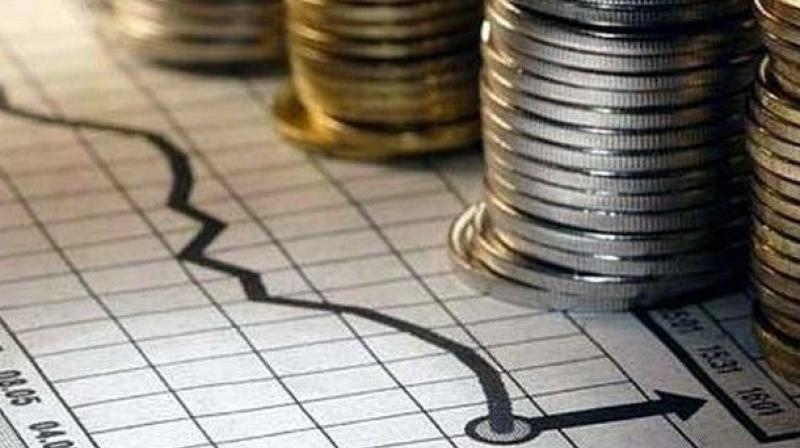Global economy has peaked; trade war torpedoes optimism: reports
The Fed is expected to plough ahead as planned with two more rate hikes this year and two next year.

Bengaluru: Global economic activity remains solid but has already passed its peak, according to economists in Reuters polls who expect protectionist policies on trade, which show no signs of abating, to tap the brakes significantly.
While trade conflict between the United States and other major trading partners, in particular China, has had only a modest impact on global trade and the world economy so far, the turmoil in financial markets clearly suggests confidence has taken a hit.
World stocks have been whipsawed by several sell-offs in recent weeks. The dollar has risen 5 per cent since April on those concerns and on still-solid expectations for several more Federal Reserve interest rate hikes this year and next.
Reuters polls of economists, foreign exchange analysts, bond market and equity market strategists in recent months have raised alarm bells and the US government bond market is also close to flashing a recessionary signal.
In the latest Reuters polls taken this month, nearly three-quarters of the 150 economists who answered an additional question said trade protectionism would have a significant downward impact on global growth next year.
That conclusion is based on trade barriers already raised and US President Donald Trump’s threat to impose further tariffs on all $500 billion of imported goods from China will likely make sentiment worse.
“The protectionist measures announced so far are unlikely in themselves to have a strong negative impact on growth, but we are deeply concerned about a possible escalation of the trade conflict,” noted Marco Valli, head of macro research at UniCredit.
“The balance of risks for the global economy is therefore now shifting significantly to the downside.”
Analysis of the latest Reuters polls based on more than 500 economists covering around 40 countries shows, based on their estimates, that growth in most major economies has already peaked.
Average global economic growth for this year and 2019 was forecast at 3.8 per cent and 3.7 per cent respectively, based on contributions from more than 70 economists.
While that is unchanged from a poll published three months ago, it is lower than the International Monetary Fund’s projections.
“The direct effects of higher tariffs should not have a meaningful impact on global growth,” wrote Neville Hill, co-head of global economics at Credit Suisse.
“But we remain concerned that uncertainty could have a chilling effect on business investment, which remains a key driver of global growth. That’s important given a global economy with differences in growth momentum and policy risks.”
US economic growth, which likely surged to an annualised 4.1 per cent in the quarter just gone, is expected to lose momentum in the current and subsequent quarters and through to the end of next year to about half that rate.
Economic growth in the euro zone, Germany, France, Italy, Britain, Japan and China was also expected to slow this year and next.
Even India, which is forecast to remain the fastest-growing major economy this year, is not expected to match or surpass the 7.7 per cent rate reported for the latest quarter.
Central Banks
While policymakers remain cautious on uncertainty caused by the trade war and slowing growth, policy tightening was still expected to be on the agenda before the next downturn.
Despite the recent rise in oil prices, inflation was still forecast to remain tame and the outlook for interest rates across most major economies was largely unchanged compared with three months ago.
The Fed is expected to plough ahead as planned with two more rate hikes this year and two next year. The European Central Bank is still on course to end its crisis-era stimulus by end-2018 and raise rates in a year from now or a bit longer. The Bank of England is expected to raise rates in August.
The dilemma for major central banks is the need to move away from almost a decade of stimulus without curbing economic growth and so bringing the next recession closer.
The median probability of a US recession in the next two years was 35 per cent, higher than the 30 per cent chance of that in Britain and 25 per cent probability of one in the euro zone.
But much depends on there being no further major escalation in global trade tensions. That is far from clear.
“I am kind of assuming that trade tensions won’t keep escalating,” said Jim O’Sullivan, chief US economist at High Frequency Economics. “I think it’s the biggest source of downside risk in the year ahead. But in the end I am assuming that the trade war doesn’t drag us into a recession.”

